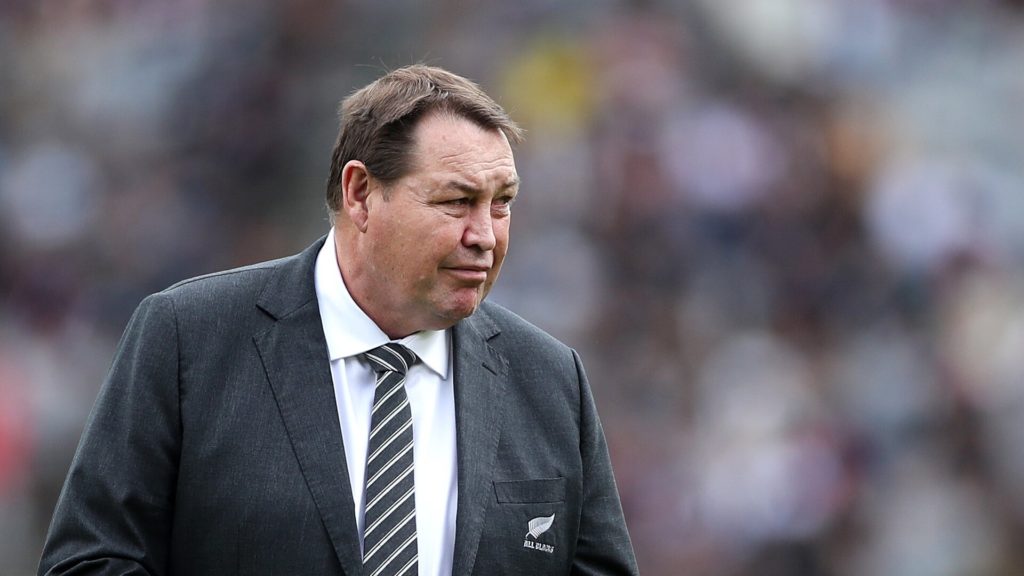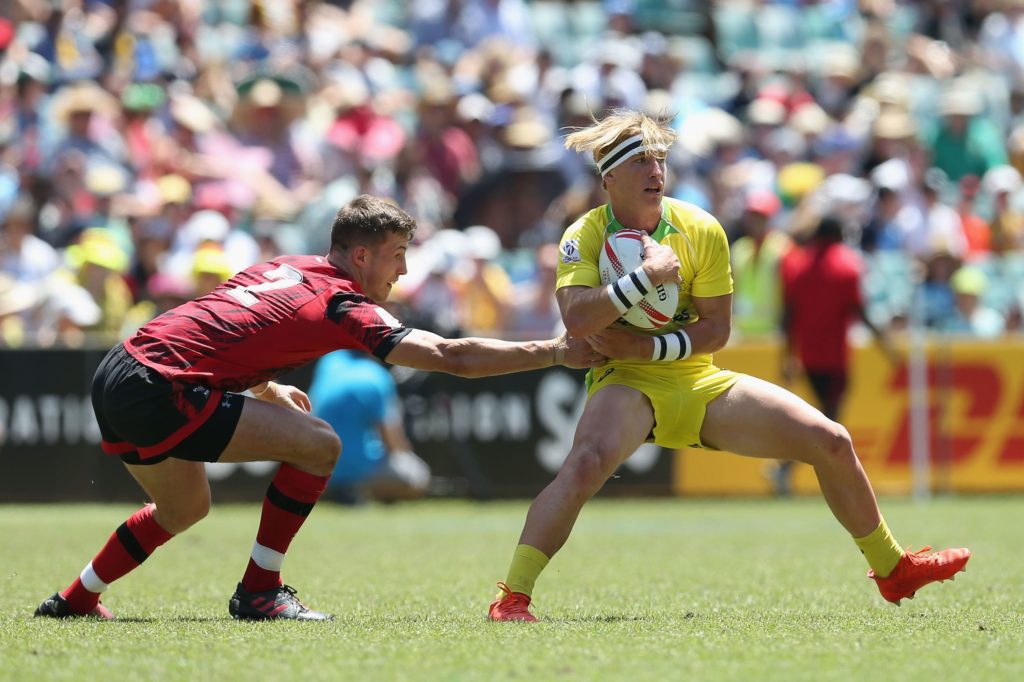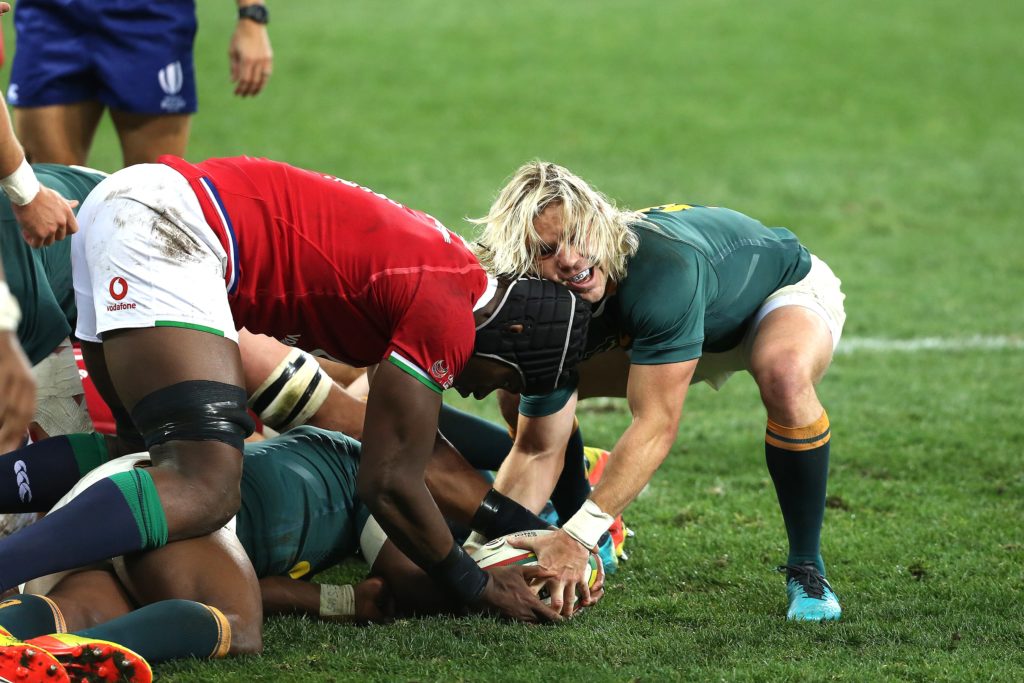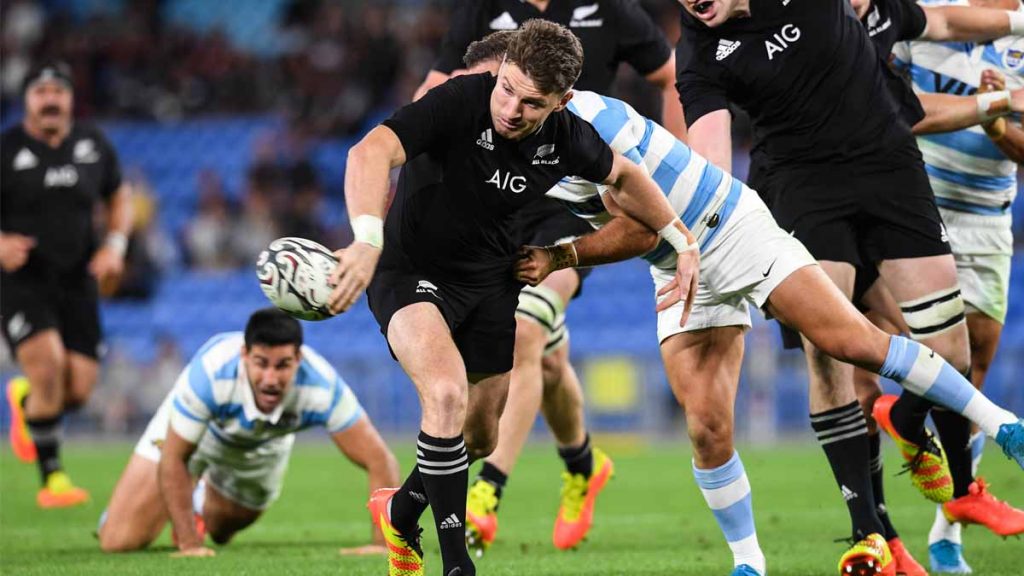Steve Hansen has taken a giant swipe at World Rugby and believes the new World 12s concept can revolutionise a game that is “struggling a bit” off the back of a dour British and Irish Lions series.
The World Cup-winning All Blacks coach was recently announced as an ambassador for the new tournament, which has yet to be supported by World Rugby.
Why?
“Well, I’ll probably get shot for saying this, but World Rugby doesn’t influence anything,” Hansen told The XV.
“Six Nations influences everything. If it doesn’t influence the Six Nations, it doesn’t happen.”

Hansen believes the competition, which is set to include eight franchises, 192 of the best players in the world and features 12 players on a side – six forwards, six backs – can revolutionise rugby in the same way the Indian Premier League has changed the way cricket is played.
“The last time I believe anything as exciting as this happened in rugby, for the players particularly, is when it went professional,” he said.
“That’s one of the reasons why I want to be involved because it gives us the opportunity to get some of the changes we need happening at the very top.”
The competition will allow players from all over the world to “rub shoulders together” over three weekends, with the inaugural season set to be played in England in 2022.
Three matches a weekend would be played and run for 30 minutes each, while players would be limited to playing 60 minutes across the games which would force coaches to use their squad.
Squads would have to have representation from tier-two nations, while emerging players must also be included.
I don’t think that’s going to happen then, but you have to have a date and from there I think the dialogue will have to open it up so we can fit it in the calendar.
Steve Hansen on the current August start-date for the 2022 World 12s
It creates opportunities for superstars like Maro Itoje, Siya Kolisi, Beauden Barrett, Semi Radradra and Taniela Tupou to play alongside one another.
The tournament is slated for next August, although Hansen admits, “I don’t think that’s going to happen then, but you have to have a date and from there I think the dialogue will have to open it up so we can fit it in the calendar.”
Nor does it have unformed support from all the unions, with Rugby Australia in opposition.
“I’m not a fan of the idea,” Rugby Australia chairman Hamish McLennan told The XV.
“We’ve got sevens and our XVs and we have to continue to work on more variations on the XV-man game [50-22, drop kick restarts, 20-minute red cards], with the added dynamic that we play alongside a 13-person rugby league competition in Australia.”
But Hansen, as well as Wallabies great Matt Giteau, believe the competition can breathe fresh life into the XV-person game.

“Currently, I think the game is struggling a bit,” Hansen said.
“There’s probably two teams that are playing with real flair and skill – two-and-a-half really, Australia want to play like that and are very capable of it – but everyone else is playing a kicking game. I don’t know if that’s because they don’t believe in the officiating and what they’re going to get if they do try and run the ball, but that’s what’s happening.
“We saw it [last Sunday] night, two games, two contrasts, the All Blacks tried to play while Australia and South Africa got into a kicking duel and it came down to penalties.”
He added: “Some teams are just playing the percentages because they don’t trust themselves to play anything else. The Lions series against South Africa wasn’t a great showcase for rugby and if rugby is played because it’s a kicking game we’ve lost our way.”
Hansen believes the World 12s can change the status quo.
He believes with the added space on the field, which keeps the integrity of the game through six forwards, as well as a stronger mandate on rules and officiating at the breakdown and the offside line, the “north” will see the light.
If we go to officiating, and we’ve talked about this as a group, we would like to be able to produce a piece of paper that said, right, this is what the referees are going to do today.
“The biggest problem in our game at the moment is you can’t play against a destabilised defensive line because people slow the ball down and then you’ve got a whole group of people waiting on you to carry the ball into them,” Hansen said.
“So if we can create a game where you’re just refereeing the rules that are already there, that allows you to get quick ball, then you can attack against defences that aren’t stable, you’re going to create havoc and I think this is one of the beauties of 12s is you can start driving this and doing this in this game and take it through to the XVs.”
Hansen says officiating and policing of the breakdown, not the ruck, has already been discussed.
He believes cleaning up the breakdown and maintaining a firm offside line is imperative.
“If we go to officiating, and we’ve talked about this as a group, we would like to be able to produce a piece of paper that said, right, this is what the referees are going to do today,” he insisted.
“You’ve got three officials, right, what are the critical things about the breakdown, the tackler rolling away and that might be two tacklers, it might not just be one because there’s a lot of double tackles, so we turn around and say right, ‘Both guys have to be able to role away,’ so who is going to look after that? The on-field referee will look after that.

“Who is going to look after the wider table of the breakdown, well the near-side ref can look at.
“Then the next thing that might be critical is the off-side line, so what are we going to say there? We want space, if we can’t see space behind the last man’s feet to the other side of the field, someone’s offside, I don’t care who it is, they’re offside.
“There’s three things they have to referee and the far-side touch judge can do that and then you’ve got one job each, so you’ve got an ownership of it, you’ve got a responsibility for it and if you can’t get it right then there’s consequences.
“You don’t get the games you want to get, so you’ll find people will work better together. They’ll make better decisions.
“If we can get people rolling away and the ball’s available – and I guess the other thing you would look at is people going off their feet and, again, the on-field ref can see that, like you’re either on your feet of your not – and we rule that really hard, players and coaches will adjust and we’ll get a game that allows us to play football.”
You can change law after law, but I think it requires a complete rewrite so all those terms that are no longer relevant and the interpretation are taken out.
Brumbies forwards coach Laurie Fisher
Hansen’s comments were echoed by one of Australia’s longest and most respected coaches Laurie Fisher, who is well regarded for his expertise at the breakdown.
“I would be harder on the player contesting over the ball to make sure he is absolutely legal in everything he does,” Fisher told The XV.
“So his point of entry through the gate, his release of the tackled player to allow him to play the ball, his support of his body weight, and the fact he’s trying to win the ball and not just hold his body weight. If he does those four things, then happy days and he wins the turnover.
“You can change law after law, but I think it requires a complete rewrite so all those terms that are no longer relevant and the interpretation are taken out.
“It depends on your focus. Is your focus on providing the attacking side an opportunity? I understand it’s a game of fair contest, but there’s so many turnovers that aren’t gained legally. There are very few that would be gained legally.”
Where Fisher disagrees with Hansen is that international teams can’t find space.

He points to the All Blacks’ success in carving up the Wallabies and Argentina’s Pumas during the initial stages of the Rugby Championship.
“Trying to create more space on the field is an issue,” he admits. “But the All Blacks under the current laws don’t have any trouble scoring tries. What are they averaging? Six tries a game in four tests?
“So do we change the game because a lot of sides don’t have the capacity to score or do you say, listen, you guys have got to get better in your attack.
“Their adventure out of their own end, their skill-sets, is what sets [the All Blacks] apart, doesn’t it?
“But is there a problem around the breakdown, there’s always interpretation, and I look at the penalty Hooper was awarded last weekend, hands on ground; I look at the penalty the South African guy was awarded later, again, hands on ground.
Anytime Australia tried to play against South Africa, they kept getting forced back, forced back, knock-on or a drop play, the percentage play is to kick, play field position, almost like a game of patience, so I think this game of twelves will open the game up and reward people looking to play.
Matt Giteau
“To me, if you don’t reward a guy that doesn’t support his own body weight, I think it’s pretty simple and you get more of an attacking flow, so if you’re really hard on the release, really hard on the roll away, really hard on no hands on the ground, you’ve got to be on the ball and lifting, if that’s what you’re hard on, rather than jumping up and quickly rewarding a guy who is on the ball for a second, then a side will be more inclined to attack.
“At the moment there’s too much advantage for the defensive team. But what needs to change? The attack needs to get better.”
Giteau, who has played professional rugby across three decades, 103 tests for the Wallabies and in two World Cup finals, believes there is less and less incentive to play running rugby.
It is why the playmaker is on board as an ambassador.
“I just think defences have got a lot better so, like Steve said, you’re getting two people into the tackle, they slot it up, then you’ve got 10 to 12 people in the line looking to push up,” Giteau said. “You don’t get rewarded for playing rugby.
“Anytime Australia tried to play against South Africa, they kept getting forced back, forced back, knock-on or a drop play, the percentage play is to kick, play field position, almost like a game of patience, so I think this game of twelves will open the game up and reward people looking to play.”

He added that the three-week competition would replicate the experience of playing for the Barbarians.
“If you talk to any of the players that have an opportunity to play Barbarians rugby, it’s almost like a World XV put together, it’s one of the best weeks of your life, of your career,” he said.
“I’ve had the opportunity to play with Ma’a Nonu, normally you’re playing against him, you get the opportunity to learn, play with him, pick his brain a bit, this is a similar concept.”
Hansen would be interested if a franchise came to him and asked him to coach a side.
But that’s not what excites the highly respected rugby mind.
“If given the opportunity, would I be a coach? probably, at this point, I’d probably say yes” Hansen said.
“But that’s not what excites me, this excites me because I think this is going to be good for rugby.
“The game’s way bigger than all of us and if we can get it right, and it enhances our game, it’s going to enrich it, it’s going to encourage more young people to play it, it’s going encourage more people to invest in it, it’s going to encourage more people to watch it.”


Comments
Join free and tell us what you really think!
Sign up for free